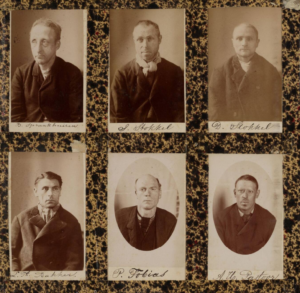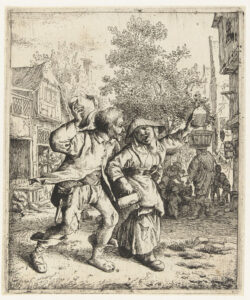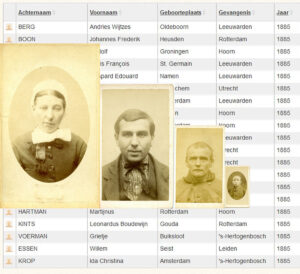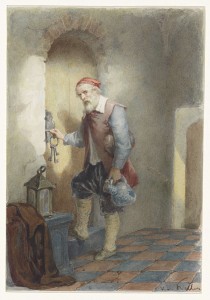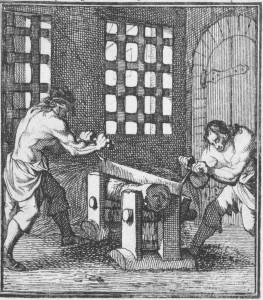A gedetineerde (literally: detained) is a prisoner. You may find them in prison records. From the late 1800s, some prisons took photos of their prisoners. You can find those in the records of the prison, usually kept at the archives in the provincial capital. You can also check the secret register of released prisoners. … [Read more...]
Quick tip – Many people were convicted of crimes
In the nineteenth and early twentieth century, you may be surprised to find how many of your ancestors were convicted of a crime or misdemeanor by the courts, and how many had to serve a prison sentence. Many things for which the police would just give a ticket today were brought before the court. Poor people often received a (short) prison sentence instead of a fine, or would be sent to prison if they did not pay a fine. Some examples of crimes my poor ancestors were convicted of: … [Read more...]
Dutch terms for different prisons
Before 1811, locking people up was typically not used as a punishment. People could be confined while awaiting trial, or could be committed to a tuchthuis (house of discipline) where they had to do hard labor. In 1811, the French prison model was introduced, where people would be locked up in a gevangenis [prison]. The system was overhauled in 1821 and again in 1886. Here is an overview of the different terms and meanings. For more information about researching prisoners, see the articles … [Read more...]
Level 4 Checklist – Property ownership, military service, religion, criminal activity
A few months ago, I issued my Level-Up Challenge, challenging you to assess how complete your research is. By level 2, we know the names of our ancestors and where and when they were born, married and died and by level 3, we also have to know their occupations, places of residence, and their children and spouses. To reach level 4, we also need to know what property they owned, if they served in the military, what religion they were, and if they were involved in any criminal activities. In … [Read more...]
Source – Secret Register of Released Prisoners
A source with an intriguing name is the "Geheim Register van Ontslagen Gevangen" or the Secret Register of Released Prisoners. This register was kept from 1882 to 1896 and included the photos, personal details, and overview of crimes of the prisoners who would be released in the upcoming month even though they were still considered dangerous. This included people who served multiple sentences, or who served a long sentence for a serious crime. … [Read more...]
Dutch term – Cipier
A cipier is a prison warden or jailer. If your ancestor was a cipier, you may be able to find more information about him in the administration of the prison. You may also find a cipier as the witness in a death record. In that case, your ancestor might have been in jail. You can check prison records to find out more information. … [Read more...]
Quick tip – Always check the original record
My client wanted me to find interesting stories about her ancestors. Normally, that would have me scouring newspapers and court records, but only after I find the basic information about birth, marriages and death. The civil registration records are not the first place you would think to look for interesting stories, but sometimes they will give you the first hint. I found the date and place of birth of one of her ancestors in the extract of his birth record in the marriage supplements. A … [Read more...]
